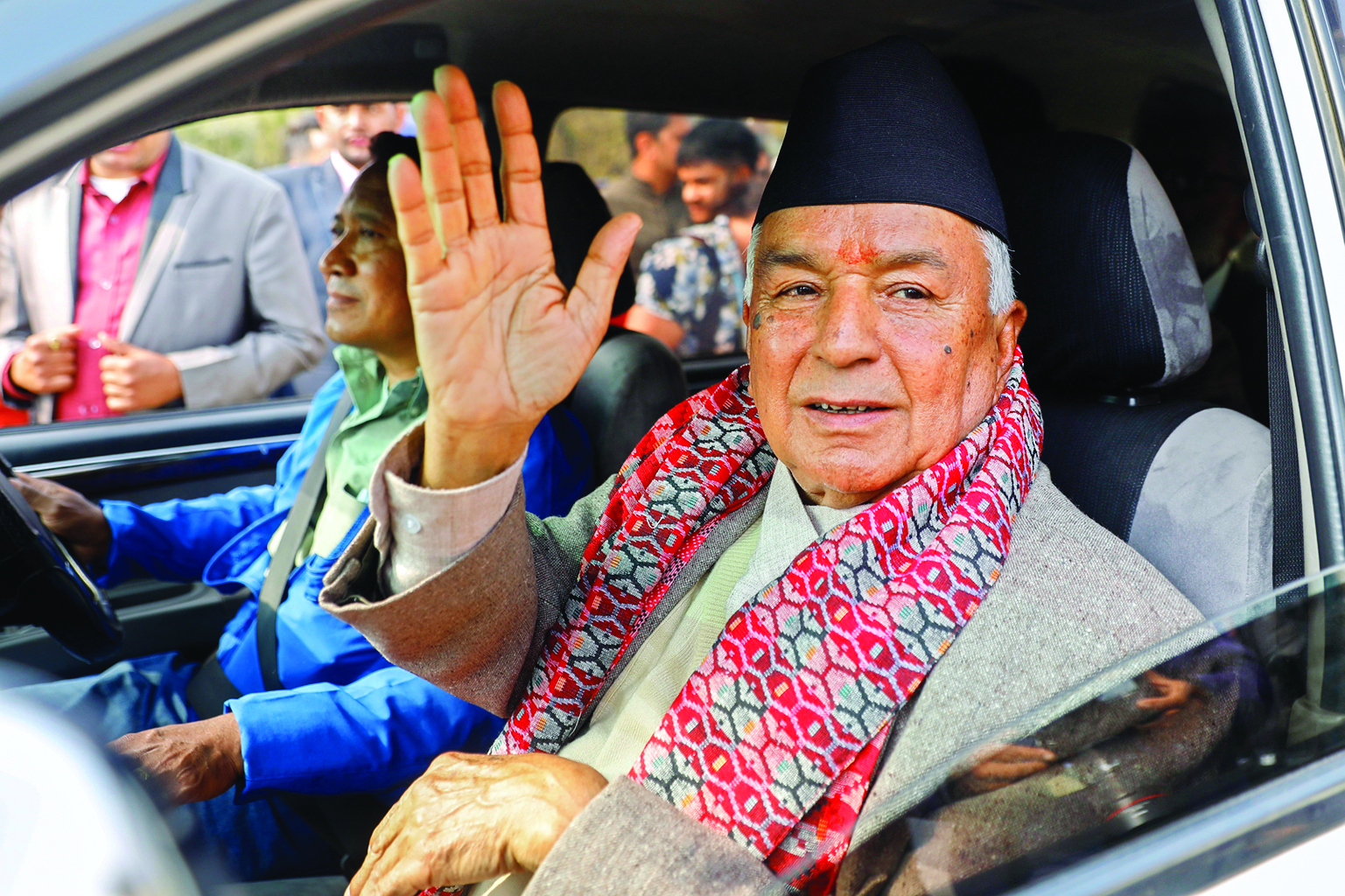NC’s Paudel set to become Nepal’s nxt Prez after PM ditches Oli’s candidate

Kathmandu: The Nepali Congress’ senior leader Ram Chandra Paudel is set to become Nepal’s next president after he was endorsed by eight political parties, including the CPN-Maoist Centre of Prime Minister Prachanda who sidelined his coalition partner K P Sharma Oli’s nominee to support his candidacy.
Paudel will vie against CPN-UML’s Subas Nembang in the March 9 presidential election which may change the power equation in the Himalayan nation.
Paudel, 78, and Nemwang, 69, filed their candidacies on Saturday.
Poudyal filed the nomination papers with the backing of eight political parties - Nepali Congress, CPN- Maoist Centre of Prime Minister Prachanda, CPN-Unified Socialist, Rastriya Janata Party, Lokatantrik Samajwadi Party, Rastriya Janamorcha, Nagarik Unmukti Party and Janamat Party.
Poudel’s candidacy was proposed by Congress President Sher Bahadur Deuba, CPN (Unified Socialist) Chairman Madhav Kumar Nepal, Maoist Centre’s Senior vice-chair Narayan Kaji Shrestha, Federal Council Chairman of Janata Samajbadi Party Ashok Rai and Abdul Khan of Janamat Party.
His candidacy was seconded by President of Loktantrik Samajbadi Party Mahanta Thakur, Congress vice-president Purna Bahadur Khadka, Nagarik Unmukti Party Chairperson Ranjita Shrestha, Chairman of the Rastriya Janamorcha Chitra Bahadur KC and Maoist Centre’s Hitraj Pande.
Nembang’s candidacy was proposed by UML Chairman Oli, Deputy General Secretary Prithvi Subba Gurung, secretaries Gokarna Raj Bista, Raghubir Mahaseth, and Chhabilal Bishwakarma. Party leaders Yogesh Bhattarai, Top Bahadur Rayamajhi, Juli Kumari Mahaseth, Dil Kumari Rawal Thapa, and Aman Kumar Maskey have seconded the proposal.
With the support from eight political parties, Poudyal’s victory in the election is almost certain. The tenure of the current president, Bidya Devi Bhandari, will end on March 12.
Maoist Center Chairman and Prime Minister ‘Prachanda’ has dealt a blow to CPN-UML chairperson and former premier Oli by choosing a presidential candidate from outside the ruling alliance. The presidential election has put a serious question mark on the future of the seven-party ruling alliance.



